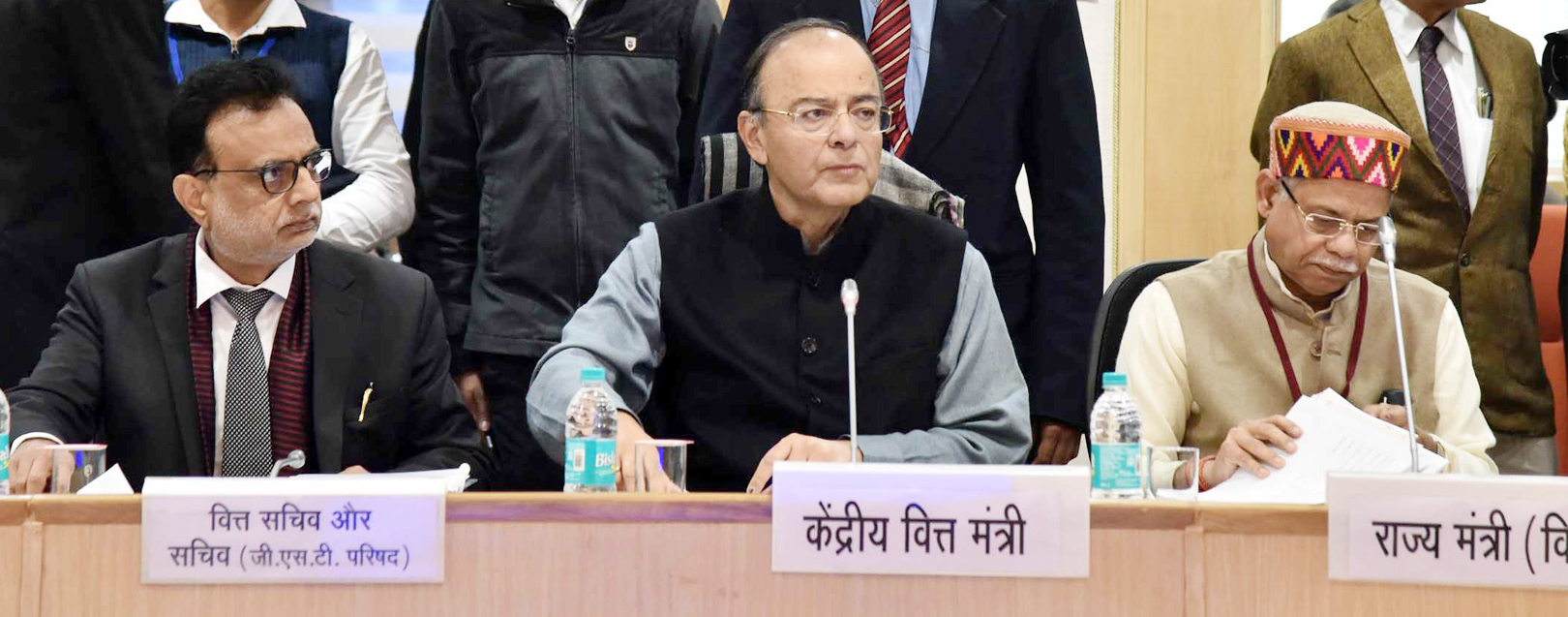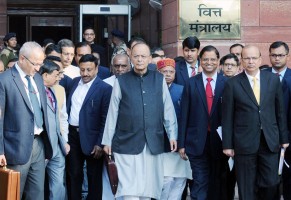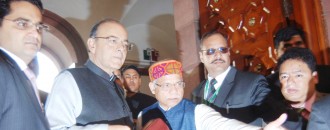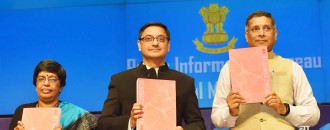
GST Council approves rate changes of 29 goods, 53 services, recommends policy changes
The Dollar Business Bureau
The Goods and Services Tax (GST) Council, in its 25th meeting on Thursday, took some major decisions and approved change in rates of 29 goods and 53 categories of services and discussed measures for ‘anti-evasion’ in order to take care of faltering revenue of indirect taxes.
The Council has also discussed measures to simplify the process for filing returns, however, a final decision for which has been deferred for the next meeting.
The meeting of GST Council, the apex body on GST decision making chaired by Finance Minister Arun Jaitley, was vital as this was the last meeting before the announcement of Union Budget 2018.
“GST Council has approved rate changes of 29 goods and 53 categories of services,” Jaitley said, while speaking at a press conference after the GST Council meet in New Delhi.
The GST Council also discussed to make the return filing process simpler. The Council discussed the possibility to retain only GSTR-3B form or initial sales return.
“Simplification of the return filing process was a major topic of discussion at the meeting today. Initially, there will be a GSTR-3B and a supplier's invoice. Today it was discussed but not approved but we are moving in that direction,” he said.
On making returns process simpler, Jaitley said, “GSTR-3B and the invoices can be matched by tax officers and in case of difference, at a later stage businesses can be asked to explain. However, a final decision would be taken at the next meeting of the Council.”
Replying to a question on the possibility of filing only one return, he said that seems to be the course. Currently, businesses have to file both GSTR-3B and GSTR-1.
Jaitley further said that the Council reviewed the collections from GST and felt that it is necessary to come out with anti-evasion measures.
“The composition scheme has not been enthusiastically responded to,” he said while adding that collections with respect to the composition scheme remain a matter of concern.
The Minister said that the tax collections from businesses, who opt for composition scheme was a matter of concern as from 17 lakh businesses opting for the scheme a cumulative tax of Rs.307 crore has been collected in the first quarter.
Jaitley further said that a nation-wide roll-out of e-way bill will start from February 1 and 15 states are ready to start off with e-way bill on the same day, for inter-state transportation of goods on highways.
On including real estate in GST gambit, he said that this matter is still to be discussed.
The GST Council cut the tax rates on second-hand (medium and large) cars and SUVs from 28% to 18% and other old and used motor vehicles to 12%. The GST on diamonds and precious stones has been cut to 0.25% from 3%. The sugar boiled confectionery, packed drinking water in 20-litre bottles, bio diesel, fertiliser grade phosphoric acid, drip irrigation system, bamboo wood building joinery and mechanical sprayer will now attract 12% GST, slashed from the current 18%.
The GST rates on tamarind kernel power, mehendi paste in cones, articles of straw and velvet fabric was also cut. There will no GST on vibhuti, parts and accessories for manufacture of hearing aids and de-oiled rice bran.
However, the Council has recommended an increase in GST rate on rice bran (other than de-oiled rice bran) from nil to 5% and on cigarette filter rods from 12% to 18%.
The GST Council has decided to cut rate on 53 services categories including services by way of admission to theme parks, joy rides, water parks, go-carting, merry-go-rounds, and ballet, which will now attract 18% GST from 28%.
The Council has also decided to raise the threshold limit for exemption for all theatrical performances such as music, drama, dance, orchestra, folk or classical arts and all such type of activities in an Indian language in theatre to Rs.500 from Rs.250 per person and also extended the threshold exemption to services by way of admission to planetarium.
It has been decided by the Council that the GST rate on tailoring services will be 5% from the current 18%. To ease the pressure on households, the exemption limit of GST for services provided by resident welfare associations to their members against their individual contribution has been raised from Rs.5000 per month per member to Rs.7500. Besides, GST rate on job work services for leather goods and footwear manufacturing has been reduced to 5%.
The GST rate has been slashed on transportation services of petroleum crude and petroleum products such as petrol, diesel and jet fuel from 18% to 5% without input tax credit (ITC) and to 12% with ITC. The work contracts for government construction projects will now attract 12% GST rate from the current 18%. GST rate on Common Effluent Treatment Plants services has been cut from 18% to 12%. Besides, GST rate on construction of metro and monorail projects (construction, erection, commissioning or installation of original works) has been reduced from 18% to 12%.
The Council has decided to exempt the services relating to admission to, or conduct of examination provided to all educational institutions. Likewise, there will no GST on services by educational institutions by way of conducting entrance examination against consideration in the form of entrance fee. Services by way of fumigation in a warehouse of agricultural produce has been exempted from GST.
It has also been decided to exempt from GST subscription of online educational journals/periodicals by educational institutions who provide degree recognised by any law and; services provided by school buses; services of life insurance business provided under life micro insurance product approved by IRDAI up to maximum amount of cover of Rs.50,000.
The new GST rates will be applicable from January 25, 2018. Overall, this rationalisation of rates will impact the revenues by Rs.1,000-1,200 crore per year.






 to success.
to success.